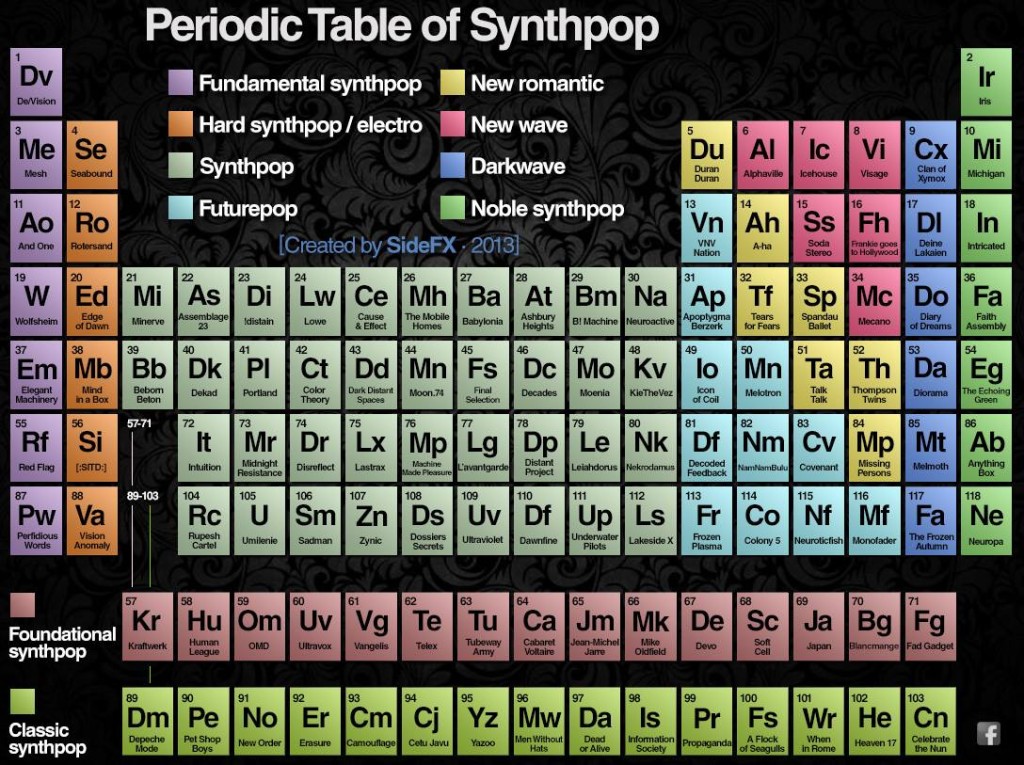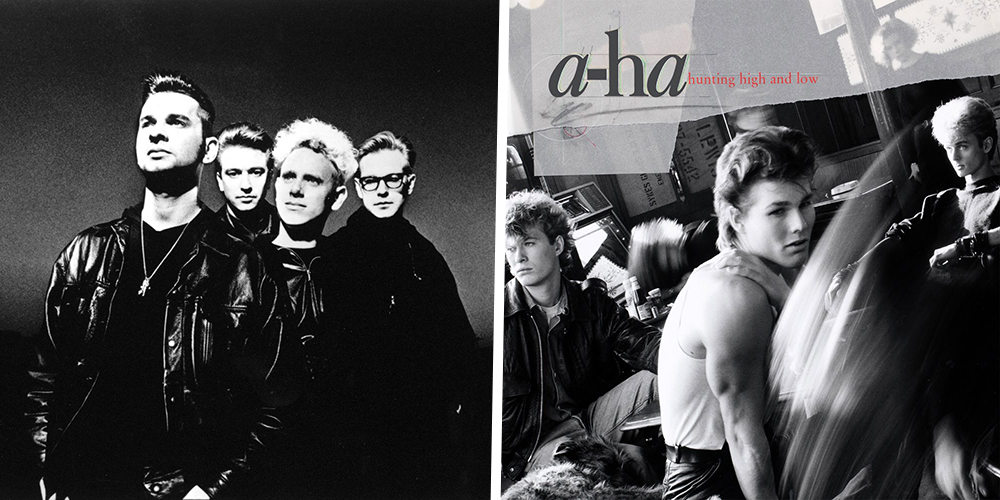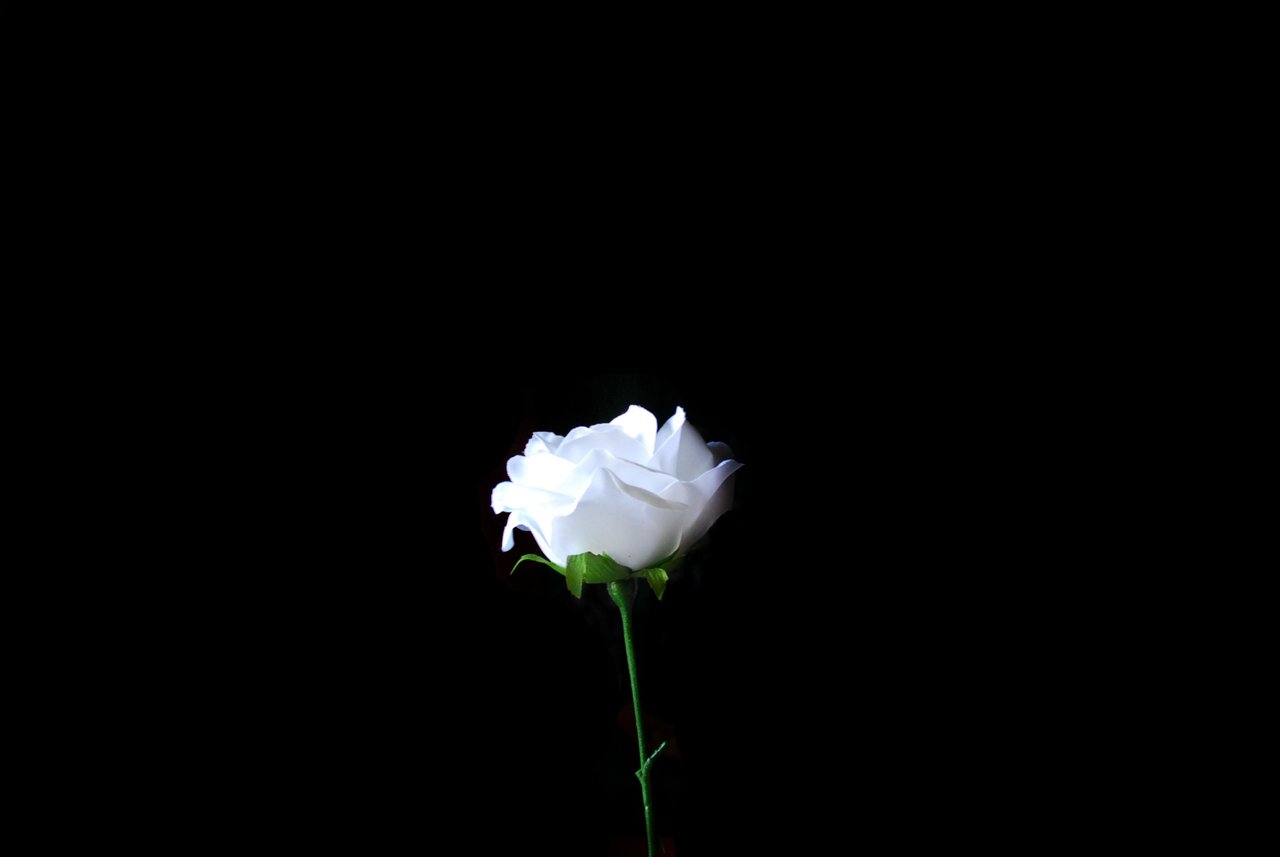Welcome back kids!
Today we’re talking synthpop, the electronic music genre that took off just after Kraftwerk and dominated the 1980s. This is what I like to stereotype as the Age of Pep (though later we’ll see how this isn’t exactly true)! Synthpop has become an ambiguous term over the last few decades, but for the sake of simplicity, let’s define it as any band that primarily utilizes the synthesizer, in addition to, or without, guitars, bass, drums, and really any other sort of instrument.

While Germany was a hub for early electronic experimentation, synthpop was a huge sensation throughout the ‘80s in the UK, made popular by groups such as Tubeway Army (Gary Numan), Ultravox, and A-Ha. Easily identifiable by their upbeat, occasionally peppy synth melodies that many of us think of as the norm for ‘80s music. This side of early synthpop music is something that I am not particularly fond of. You know the ones I’m talking about, “Take on Me” anyone?

But synthpop doesn’t always have to be classified this way. Because synthpop simply means that the music features dominant use of the synthesizer, music of this genre can also take on a richer, darker side that’s less synthPOP and frankly more creative and intricate electronics-wise.
To demonstrate both sides of synthpop, I want to introduce you to Depeche Mode, a particular childhood favorite of mine. Depeche Mode is a British band that kicked off in 1980 and is notorious for changing their “sound” every few years, making them a prime example for demonstrating various synthpop experimentation. At the start of Depeche Mode’s career, they were exactly what you’d expect from an ‘80s pop band, with fast-paced, dinky synth melodies under the classic drugged-charmer vocals of the day. Take a look:
Personally, this song has way too much pep for me, as do the first three Depeche Mode albums, which I like to dismiss completely when I rave about Depeche Mode to other people. (This part of their career is just way too embarrassing.) However, after the first three albums the group’s lead singer, Vince Clarke, left the group, and Depeche Mode has evolved dramatically ever since. Over the course of thirteen albums, the band has gravitated toward a soulful, dirtier, grungier electronic sound of synthpop that I can’t get enough of. Much more in my music territory!
Let’s take a look at a couple of Depeche Mode songs to see how their take on electronic music has evolved from album to album. The song featured above comes from their first album, Speak and Spell. If you’re not sure if ‘80s New Wave music is for you, “Just Can’t Get Enough” is just enough of a taste-tester for you to get a sense. But I’ll admit, it’s incredibly catchy. It’s kind of like the One Direction of 1981 maybe? Sorry, Directioners.

We start to hear a big shift between sounds in Some Great Reward (at first, presenting what screams overly spirited high school girl to, later, as close to goth as one could get after the first three albums). Released in 1984 with only a little residual pep, Dave Gahan, the new lead singer of the group, assumes a darker voice over instrumentals that have much more electronic sophistication. Alan Wilder, the genius behind Depeche Mode’s synthesizer usage between 1983 and 1994, is who I personally think led Depeche Mode to its musical greatness. If you pay attention to the details under “Blasphemous Rumours,” there is a much quieter, subtler electronic presence paired with a heavier bass line. (It’s definitely more sophisticated than one might expect from 1984.) This balance whips up a darker, cooler atmosphere that is extremely pleasant to listen to. It’s all about careful sound layering people!
https://www.youtube.com/watch?v=gDlQKhdo2eQ
And just a year later with Black Celebration, it seems that this toe-dipping into the dark side was no phase. Depeche Mode were beginning to truly be on the track to embodying that darker sound, and using more and more depressing lyrics to go with it. But right around the corner, another pivotal point in Depeche Mode’s music makeover embarked with the 1987 and 1990 release of the albums Music for the Masses and Violator, respectively. This marks not only a significant turning point for Depeche Mode, but for the synthpop genre as well. Other musicians had begun to walk away from the cheesy 1980s era of Madonna and B-52s to the newly popular grunge movement, and Depeche Mode was not too shy to follow suit.
https://www.youtube.com/watch?v=4CEQOjCl-AA
Their grunge period kicked in completely with the 1993 release of Songs of Faith and Devotion, and six albums later, Depeche Mode continues to delve into that darker, dirtier sound that I crave. (Their music is perfect for listening to in the car, by the way, so if you’re digging this go and buy a CD!) And even though the mastermind of electronics Alan Wilder left when he did in 1994, Depeche Mode has managed to survive and produce quality music. Delta Machine’s electronic sophistication never ceases to surprise. Released as recently as 2013, the layering is as complex and well-done as it was in the Wilder era!
https://www.youtube.com/watch?v=BdEZq6F7SEM
After all I’ve said about Depeche Mode thus far, you may be thinking to yourself, “So what?” For starters, I think it’s fascinating that Depeche Mode started to take on the darker side of synthpop and electronics as early as they did back in 1984. If you think about it, not many others were on that musical route. Afterall, the greatest hits of the day were coming from Michael Jackson, Whitney Houston, and Madonna for God’s sake. And while Depeche Mode may have not have directly influenced synthpop to broaden beyond the usual stereotype, they were one of the first to pull the genre into that direction.
Below I’ve compiled a few of my favorite songs from Depeche Mode that you can take a listen for yourself if you’re interested.
“Master and Servant” from Some Great Reward
“Stripped” from Black Celebration
“Behind the Wheel” from Music for the Masses
“Enjoy the Silence” from Violator
“Walking in My Shoes” from Songs of Faith and Devotion
“The Darkest Star” from Playing the Angel
Cheers!






